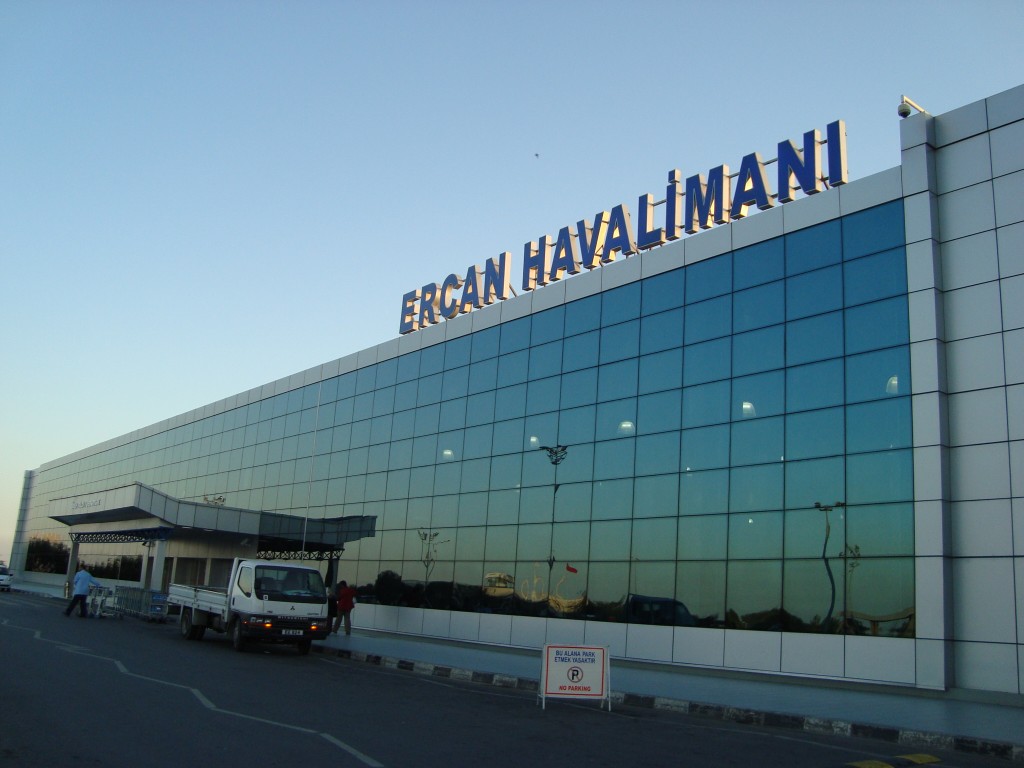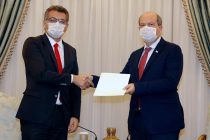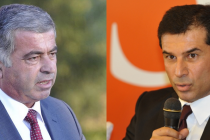The Greek Cypriot Football Association (KOP) has threatened to severely punish any members who travel from Ercan Airport in North Cyprus.
According to South Cyprus daily Alithia, the KOP Executive Board announced that any groups or individual members found travelling from Ercan Airport will be fined ten thousand Euros for a first-time offence and face expulsion from KOP in the event of any recurrence.
A letter spelling out the penalties was sent by the Greek Cypriot Sports Federation (KOA) to all Greek Cypriot football clubs, sports federations, and the Greek Cypriot Olympic Committee (KOE). The decision to fine Greek Cypriot athletes was first set out in a memorandum dated 31 July 2014, but only a few federations had formally adopted this since then.
The reminder warned all sporting travellers to avoid the use of Ercan Airport for attending sports competitions in Turkey, even though this would be the fastest and cheapest means of flying to Turkey. Instead, all Greek Cypriot travellers are expected to fly via Greece, as South Cyprus and Turkey do not share any direct political or travel links.
The issue came under the spotlight over the summer, when the Greek Cypriot Foreign Ministry sent a stiff letter to the Education Ministry chastising them for transporting young Greek Cypriot athletes to the 2016 Gymnasiade of the International School Sport Federation being hosted in Trabzon on Turkey’s Black Sea coast. The letter stated the decision to use Pegasus Airlines and fly via Ercan was “a poor one” and called on the Ministry to avoid similar arrangements in the future.
South Cyprus authorities accuse Turkey of ‘violating’ airspace
The warnings come as the Greek Cypriot government re-asserted its claim to be solely responsible for the island’s airspace and airports, and that without its prior express permission, any airline flying into Ercan or Geçitkale Airports in the TRNC was unlicensed and therefore “violating Cypriot airspace”.
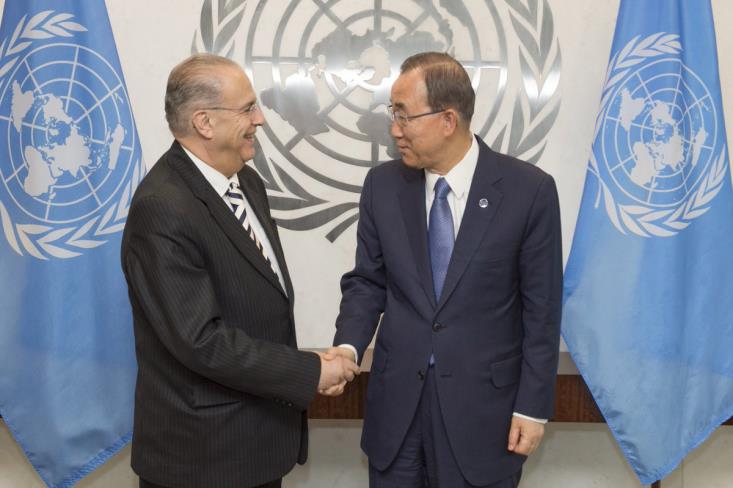
On 1 Nov, South Cyprus’ Ambassador to the UN Nicos Emiliou also sent a letter to UN Secretary General Ban Ki-moon detailing air and sea violations during the month of September. The letter, circulated as an official UN document, criticised Turkey for continuing to fly military and civilian aircraft over the northern part of the island.
“Violations of rules set by FIR Nicosia as well as violations over the national air space of the Republic of Cyprus are still going on undiminished,” said Emiliou.
The letter ignores the de facto situation – in existence since August 1974 – that Turkish Cypriots control the northern third of the island, known since Nov. 1983 as the Turkish Republic of Northern Cyprus (TRNC).
With Turkey and the TRNC enjoying full diplomatic ties, dozens of aircraft and boats travel between the two territories on a daily basis.
Greek Cypriot politicians demand action after huge growth in Ercan Airport passenger numbers
The Greek Cypriot authorities cite ‘air safety’ as their primary concern. However, comments from prominent politicians in the South suggest otherwise.
In August, several opposition parties urged for sanctions to be levied against companies and individuals travelling through the TRNC’s airports. The call came after 2015 passenger numbers for Cyprus airports were released.
Last year, nearly 4 million people used Ercan (known as Tymbou in the South) Airport, with a 14% rise expected in 2016. According to a report in Greek Cypriot daily Cyprus Mail, 5.4 million people travelled through Larnaca Airport in 2015, and 2.3 million used Paphos Airport.
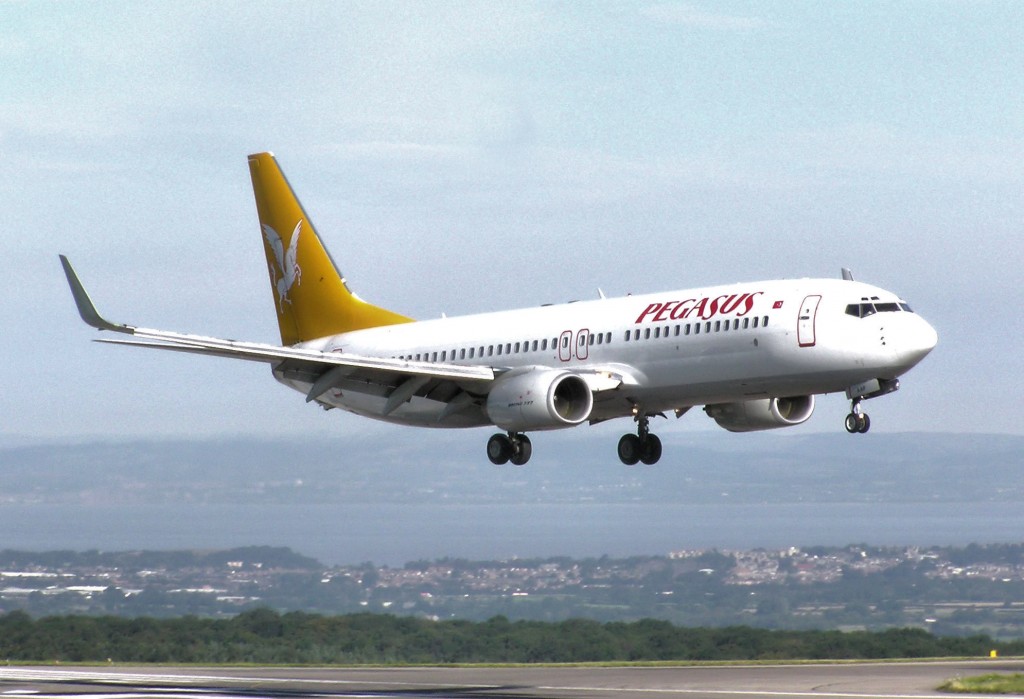
Separately, a news report published in Phileleftheros in August stated that more passengers had flown from Cyprus using Pegasus Airlines than any other. The fact that the Turkish carrier only uses Ercan has set off alarm bells among those in the South who wish for the TRNC to remain under embargo.
“Using the illegal airport of Tymbou not only displaces passenger traffic from the legitimate airports of the Republic of Cyprus, resulting in substantial revenue losses for the state,” said Athos Antoniades of right-wing DIKO, “but it also serves to upgrade the pseudo-state while serving Turkey’s divisive intentions.”
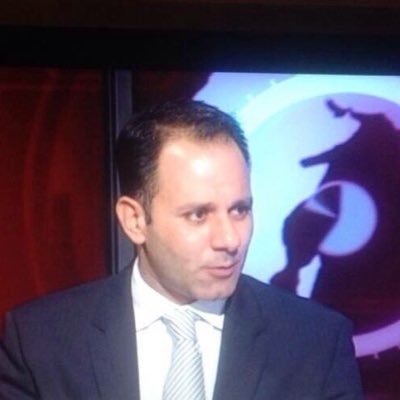
Adopting a mirror stance, socialist EDEK urged the Greek Cypriot government “to take immediate measures against those who use the airport”.
The party suggested an information campaign be launched explaining the negative economic and political impact of passengers’ use of the “illegal airport”.
South Cyprus’ Green Party echoed these comments, while far-right group ELAM, which currently has two MPs in the Greek Cypriot Parliament, demanded the crossing points along the Green Line be closed to prevent access to Ercan.
Initially unwilling to take up such measures for fear of damaging the Cyprus Talks, in recent weeks the Greek Cypriot Foreign and Transport Ministries have warmed to these suggestions, using every available opportunity to press for action against the use of Ercan Airport.
Along with the letter to the UN, South Cyprus’ Transport Minister Marios Demetriades also raised the issue in a speech at a conference organised by the Flight Safety Foundation-Mediterranean (FSF-MED) on 21 Oct.
“The development of civil aviation and safety in Cyprus is prevented by the operation of the illegal airport in the occupied areas and by the interventions of the so called Ercan control tower in the provision of air control traffic services in the Nicosia FIR, which has been condemned by the ICAO,” Demetriades said.
Travelling through Ercan Airport is legal
The Greek Cypriot response fails to acknowledge that the use of Ercan Airport is lawful, even though it is outside the control of the Republic of Cyprus.
After the Annan Plan referendum to unite the island on 24 April 2004, where 65% of Turkish Cypriots voted in favour and 76% of Greek Cypriots voted against, the EU Commission and leaders of EU member states pledged to end the “unjust” embargoes on North Cyprus. However, ending the North’s international isolation proved more difficult than expected.
On 1st May 2004, Cyprus as a whole was admitted into the European Union, however only the South has full member rights. The South also possesses an EU veto, which they have used to effectively block many measures the EU Commission has tried to take to make good on its promises to Turkish Cypriots.
One agreement they did force through was European Commission Regulation (EK) 866/04, which enabled EU citizens to freely pass through the Green Line border without fear of prosecution. This applies even if travellers have entered the island via a port in the North, previously deemed “illegal” by the Greek Cypriot authorities.
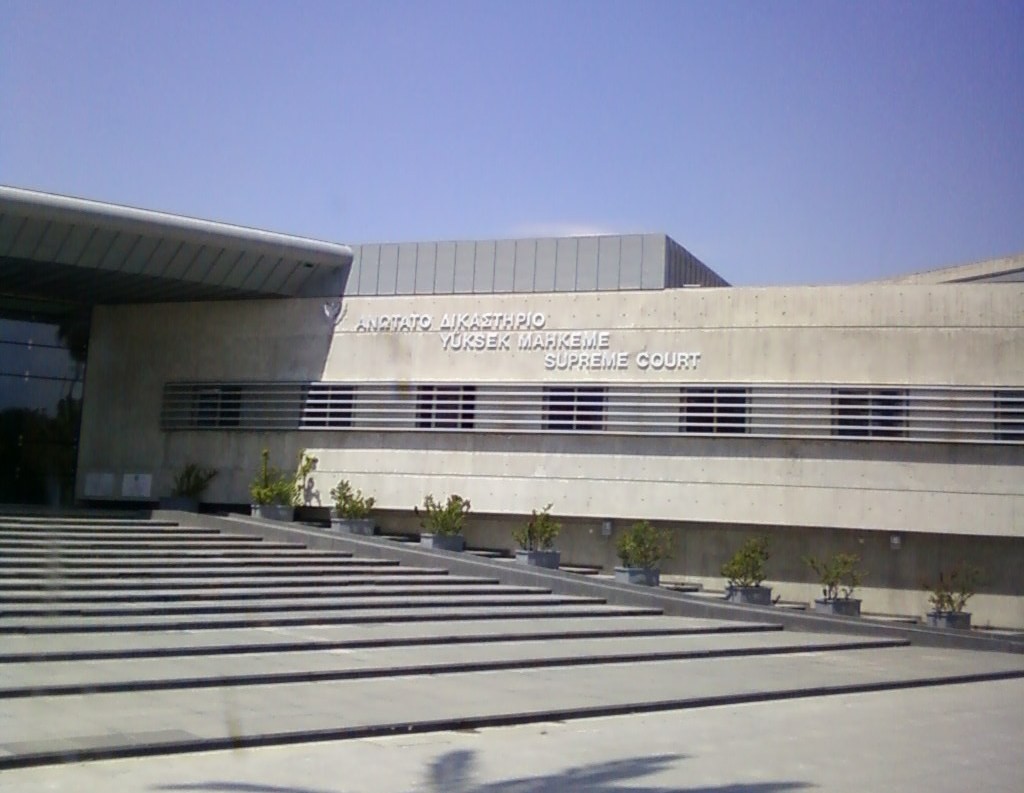
The regulation was challenged by the Greek Cypriot authorities when the attorney-general brought criminal charges against Neophytos Constantinou for flying out of Tymbou (Ercan) airport. However, the Nicosia District Court found in favour of the defendant, citing Regulation 866/04 in its ruling on 20 Aug. 2004, thereby preventing the authorities from levying any penalty against him.
Two appeals by the attorney-general in Sept. 2004 were turned down by the Republic of Cyprus’s Supreme Court for the same reason.


